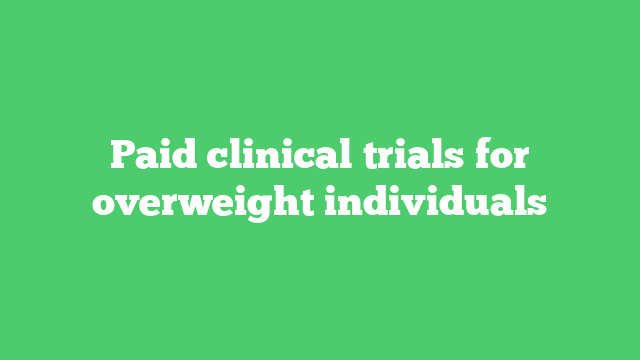Clinical trials are research studies primarily carried out to determine the effectiveness and safety of a medical strategy, treatment, device, or to gain a deeper understanding of a specific ailment. These trials follow stringent standards and guidelines to ensure that the results are reliable. It’s important to note the key aspects of clinical trials. They often involve comparisons between a new medical approach and a currently accepted one, patient volunteers, and are conducted under the watchful eye of a team of medical experts and professionals.
These trials form an integral part of the process of drug development and approval. Each trial goes through a series of phases, starting from the initial human testing phase to the final approval stage. They extend over different areas encompassing drugs, dietary supplements, vaccines, and medical devices. By understanding the concept of clinical trials, we can begin to appreciate the rigor and meticulousness that goes into improving medical treatments and healthcare standards.
The Necessity of Clinical Trials in Addressing Obesity
Obesity is viewed as a global pandemic, affecting millions of people and causing a multitude of health issues including cardiovascular diseases, diabetes, and certain types of cancers. What intensifies this pandemic is the fact that despite years of established weight management techniques and strategies, there have been a number of discrepancies and failures, bringing the effectiveness of these methods into question.
This emergent sector is where the crucial role of clinical trials comes into play. Clinical trials offer a well-structured and controlled environment to test the efficacy of new drugs, therapies, or interventions for managing obesity. They allow researchers to gauge potential improvements over current weight management practices and treatments. The outcomes of these trials could bring significant advancements, potentially improving the life quality of millions suffering from weight-related issues.
Criteria to Participate in Weight-Related Clinical Trials
Eligibility for participation in weight-related clinical trials often depends on a variety of factors. These trials customarily seek individuals who have a specific Body Mass Index (BMI), typically classified as overweight or obese. The age range may also vary, with some studies focusing on adolescents and young adults, while others concentrate on middle-aged or older adults. Health status is another key criterion, with many trials recruiting subjects with weight-correlated ailments like diabetes, heart disease, or high blood pressure.
Nonetheless, not all trials are limited to those who are already dealing with health complications related to obesity. Some trials aim to research preventive strategies and thus require participants who are at risk of becoming obese but have not yet developed any serious health issues. Often medical history, lifestyle habits, willingness to commit for the entire study duration, and even genetic predispositions are put under consideration. Details about specific criteria are provided in the description of each trial, enabling potential participants to screen opportunities that align with their personal circumstances.
The Procedure of Clinical Trials for Weight Management
Clinical trials are methodically designed to study the efficacy, benefits, and potential side effects of a particular treatment or intervention. The process begins with a pre-screening phase where potential participants’ eligibility is assessed based on predefined criteria such as age, weight, BMI, and associated medical conditions. Those who qualify are then selected for further evaluation. This includes a detailed physical examination, a review of the candidates’ medical history, and possibly some diagnostic tests.
Following qualification, enrollees are split into groups. Usually, there’s a control group, which receives a placebo or standard treatment, and an experimental group, which receives the intervention being tested. These treatments may include medication, devices, counseling strategies, or lifestyle changes such as diet and exercise plans. This randomization and blinding process, where neither the participant nor the investigator knows which group the participant is in, helps to eliminate biases and ensures that any observed differences in outcomes are due to the intervention. Regular follow-ups and careful monitoring of participants are integral parts of the trial to ensure safety and to evaluate the effectiveness of the intervention.
Monetary Compensation in Clinical Trials
In the world of clinical research, monetary compensation serves as an important incentive to recruit and retain participants. This financial aid often aims to offset the time and commitment provided by participants or to cover costs associated with their involvement like travel or meal expenses. This compensation is not intended to be a reward or a salary, rather, it reflects an appreciation for the individual’s commitment to the progress of medical science.
However, the amount of compensation varies across different trials depending on factors such as the length of the trial, the amount of risk involved, or the inconvenience the participant may experience. It is important to diversify the participation population in trials, rich or poor, to obtain a vast range of results. Therefore, offering monetary compensation can help encourage a wider demographic to participate, increasing the representativeness of the trial results. The nature and rate of compensation are usually thoroughly explained during the informed consent process so that potential participants can make an informed decision.
Potential Risks Involved in Weight Management Clinical Trials
Like any medical or scientific endeavor, clinical trials for weight management are not without their risks. The primary intent of these trials is to assess the safety and effectiveness of a new treatment or intervention, and since they often involve unproven methods, there will always be a level of uncertainty. Some common risks include side effects from new medications or treatments, adverse physical responses from new dietary or exercise plans, and psychological effects from the necessary changes to lifestyle and routines.
On a broader scale, trial participants may not necessarily achieve their desired weight loss goal within the trial period, leading to disappointment or frustration. Furthermore, confidentiality risks exist, with participant data potentially exposed due to breaches in data security. Nonetheless, it is important to highlight that these risks are recognized and addressed vigorously by policymakers and medical professionals to ensure the well-being and safety of each participant.
The Role of Informed Consent in Clinical Trials
Informed consent is a fundamental ethical requirement for clinical trials, aiming to safeguard participant autonomy and rights. This process involves providing potential participants with comprehensive, understandable information about the study’s purpose, procedures, potential benefits, and possible risks. It allows people to make an informed decision about their voluntary participation, ensuring a transparent, respect-filled relationship between the researchers and the participant.
Despite the complex terminology and medical jargon often associated with trials, the informed consent process commits to a layman’s explanation of details. A well-crafted informed consent form strikes a balance between scientific accuracy and comprehensibility. While it’s written in a language that the participant can understand, it must also cover critical aspects such as study duration, confidentiality concerns, available alternatives, participant’s rights and responsibilities, and compensation, if there are any. In essence, informed consent is not just a form to be signed; it’s an ongoing, interactive conversation that (re)establishes trust and underscores respect for patient autonomy throughout the trial.
Success Stories from Previous Clinical Trials on Weight Issues
Clinical trials on weight issues have produced several remarkable success stories, serving as an inspiration to many. The Gelesis100, a non-invasive treatment for weight loss, stands out as a notable success. This treatment was tested in a randomized, double-blind, placebo-controlled clinical trial involving 436 subjects. The results were impressive: 59% of individuals in the treated group had significant weight loss, with a mean loss of 10% of their body weight.
Another striking success story emerged from the Diabetes Remission Clinical Trial (DiRECT). This significant trial involved a total of 298 adults who had been diagnosed with type 2 diabetes. Participants underwent an intensive weight management program that involved a low-calorie diet. Astonishingly, almost half of those enrolled achieved diabetes remission after a year, highlighting the substantial impact weight management can have on health conditions. The results of these clinical trials offer substantial evidence that tackling weight issues can yield remarkable positive impacts on overall health and wellbeing.
The Impact of Clinical Trials on the Fight Against Obesity
Clinical trials play a significant role in mitigating the effects and prevalence of obesity. They function as key research tools that contribute to broader understanding of weight management strategies, nutritional factors, and the effectiveness of specific interventions. These trials have the potential to discover new and improved ways of addressing obesity while enhancing our knowledge about its underlying causes, thereby fostering progress in public health and medical fields.
Importantly, clinical trials can lead to innovative, efficacious drugs and other treatments for obesity. The data obtained from these trials helps in refining existing treatment protocols and also informs the development of new ones, that are safe, more effective or that can target different aspects of this complex condition. By enabling constant evolution and progress of obesity treatments, clinical trials significantly impact our collective fight against this global health concern.
How to Find Relevant Clinical Trials for Weight Management
Navigating the vast plethora of clinical trials can feel overwhelming, especially when one is trying to focus on something as specific as weight management. A first crucial step is knowing where to look. A reliable starting point for this research process is through registries that provide information about ongoing and upcoming clinical trials. Examples of these registries include ClinicalTrials.gov, maintained by the U.S. National Library of Medicine, and the WHO International Clinical Trials Registry Platform. These registries provide comprehensive details, including the trial’s purpose, who may participate, locations, and phone numbers for more details. There are also networks that provide access to clinical trials over here.
Furthermore, healthcare providers are often a vital link to finding the right clinical trials for any medical condition. They can help guide towards trials that suit one’s specific circumstance, given their understanding of the field and their patient’s medical history. In addition, several research institutions or universities often conduct clinical trials, so potential participants might find it helpful to contact these places directly. Lastly, non-profit organizations focused on obesity may also provide matchmaking services, matching interested and eligible individuals to suitable clinical trials. Remember, finding the right trial might take time, but it is worth the dedication and effort.




